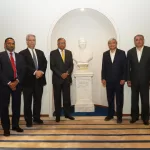Delhi, India – A recent study published in the Indian Journal of Medical Research (IJMR) has underscored the mounting challenges associated with prescribing medicines to elderly patients and called for the formulation of a dedicated drug policy for geriatric care.
The study, titled “Pharmacoeconomics of Medicines Used for Geriatric Individuals in a Tertiary Care Hospital in Delhi,” was conducted by researchers from Maulana Azad Medical College and Lok Nayak Hospital in New Delhi. It examined data from 1,000 geriatric inpatients, aged 60 and older, to assess the demographic, medical, and economic dimensions of elderly care.
Key Findings:
- High Admission Rates: Elderly patients accounted for 41.3% of total hospital admissions during the study.
- Extensive Medication Use: A total of 8,366 medicines in 127 formulations were prescribed, resulting in an expenditure of Rs 1,087,175 and a per capita cost of Rs 1,087.
- Concentrated Spending: About 91% of the expenditure was on parenteral medicines, with 70% of costs concentrated on just 11.9% of prescribed drugs.
- Prescription Challenges: 28.1% of prescriptions were deemed inappropriate, and 13.9% of patients experienced adverse drug reactions (ADRs).
- Increased Costs and Hospital Stays: Patients with inappropriate prescriptions or ADRs required longer hospital stays and additional medications, leading to higher costs.
- Out-of-Pocket (OOP) Expenses: Despite the hospital providing free medicines, OOP costs constituted 5.75% of total spending—significantly lower than some international studies, which report OOP costs of up to 18%.
The study identified gastrointestinal and genito-urinary disorders as the most expensive conditions in terms of per capita expenditure.
Implications for Geriatric Care
India’s aging population, coupled with the rising prevalence of comorbidities, necessitates urgent attention to geriatric healthcare. The study’s authors emphasize the need for a specialized drug policy to address the complexities of elderly care, ensuring the appropriateness of prescriptions and minimizing ADRs.
The findings align with the National Health Policy 2017, which highlights the significance of primary healthcare, including tailored geriatric services. Researchers also stressed the importance of monitoring prescription practices to prevent unnecessary financial burdens on patients and the healthcare system.
Moving Forward
With India’s elderly population expected to grow substantially in the coming decades, the formulation and implementation of a specialized drug policy for older adults could alleviate financial pressures while improving healthcare outcomes. Such a policy would also support equitable access to medications and align with global best practices for geriatric care.
The study is a crucial step in addressing the gaps in India’s geriatric healthcare framework and offers actionable insights for policymakers, healthcare providers, and researchers.











